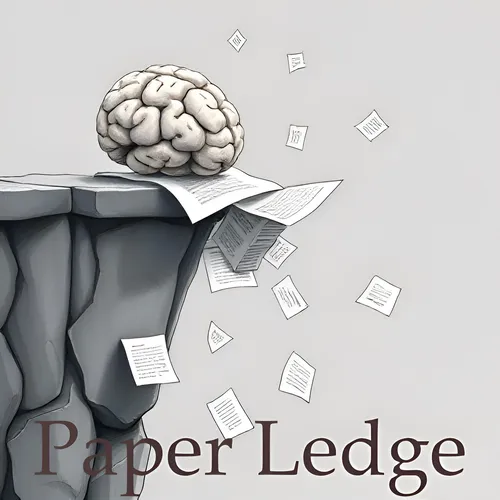Software Engineering - Resolving Build Conflicts via Example-Based and Rule-Based Program Transformations
- Author
- ernestasposkus
- Published
- Mon 28 Jul 2025
- Episode Link
- https://www.paperledge.com/e/software-engineering-resolving-build-conflicts-via-example-based-and-rule-based-program-transformations/
Alright, Learning Crew, Ernis here, ready to dive into another fascinating paper! This time, we're tackling something that every software developer knows and dreads: merge conflicts.
Imagine you're working on a group project, like building a house. You and your friends are all making changes – one's painting the walls, another's installing the plumbing. Now, what happens if you both try to change the same wall at the same time? That's a conflict! In software, that's when two developers change the same part of the code in different versions, or branches, and then try to combine them.
These conflicts can be simple, like two people editing the same sentence (textual conflicts), or much more complicated, like one person removing a crucial part that the other person's new code relies on (build and test conflicts). Either way, they slow everything down and can lead to buggy software. No fun!
Now, there are tools out there to help find these conflicts, but this paper focuses on resolving them, especially the tricky ones. Existing tools often struggle when, say, a developer removes a whole method – a mini-program within the larger program. That's where BUCOR comes in. Think of BUCOR as a super-smart mediator for code conflicts.
BUCOR works by comparing three versions of the code: the original, the version with your changes, and the version with your teammate's changes. It then uses a two-pronged approach:
- Rule-Based Transformation (BUCOR-R): This is like having a set of pre-written recipes for common conflicts. If it sees a conflict it recognizes, it applies the fix automatically. Think of it like knowing that if someone spills coffee on the floor, you grab a mop – a standard solution for a standard problem.
- Example-Based Transformation (BUCOR-E): This is where things get really clever. BUCOR looks at other times similar conflicts have been fixed in the project's history. It learns from those examples and figures out how to apply a similar solution to the current problem. It's like learning from watching a master chef – you pick up techniques and adapt them to new ingredients.
So, BUCOR combines a "rule book" with a "learning brain" to tackle merge conflicts.
The researchers tested BUCOR on 88 real-world conflicts and found that it could come up with a solution for most of them. Even better, it correctly resolved almost half of the conflicts entirely on its own! This shows that this "hybrid" approach – combining rules and learning – is really promising for making merge conflict resolution much easier.
"Our research sheds light on future directions for more intelligent and automated merge tools."
So, why does this matter to you? Well:
- For Developers: This could mean less time wrestling with merge conflicts and more time building awesome software!
- For Project Managers: This could lead to faster development cycles and higher quality code.
- For End Users: This could result in fewer bugs and a better overall software experience.
This research highlights the potential for smarter, more automated tools to help developers collaborate more effectively. But it also raises some interesting questions:
- How much human oversight is still needed when using a tool like BUCOR? Can we ever truly trust a machine to resolve complex code conflicts on its own?
- Could this approach be applied to other types of conflicts, like conflicts in documents or databases?
- As AI gets even better, what are the ethical implications of letting machines make decisions about code changes?
Lots to think about, Learning Crew! This paper opens the door to a future where merge conflicts are less of a headache and more of a solved problem. I'm excited to see where this research leads!
Credit to Paper authors: Sheikh Shadab Towqir, Fei He, Todd Mytkowicz, Na Meng
